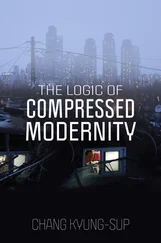After that, during the nights, in his cot, he couldn’t help but keep thinking of her. At first he pictured her chastely, as he might recall a striking woman he’d seen on the street. Was it the beauty of her particular age? She was the age he most often remembered his mother being, still youthful and beautiful enough to draw catcalls from laborers, servicemen. But then his thoughts would turn hazardous. He imagined her beside him in darkest silhouette, only the burnt flax of her hair visible, its brush alighting upon his body in scattered, sweeping sheets, a blowing rain. Or she came to him clothed only by a wide emerald ribbon, and he had to walk around her, undoing her until she was bare. But sometimes June would appear and encroach upon his reveries, as if he had no control of her whatsoever, haunting the shadows behind Sylvie. He screened the image of them bathing together, if innocently, patiently taking turns sitting in the tub in the middle room of the cottage, pouring water on each other’s back and shoulders, pleased in the thought that no one would disturb them, all this ironic in light of Reverend Tanner’s changed attitude toward him. He had surely grown more tolerant of Hector over the past month, was sometimes even friendly when he stopped to ask about the progress of the work projects, as if he, too, understood that this smaller, tighter universe which had coalesced amid them was self-sufficient and complete.
Reverend Tanner went about his duties with his typical intensity and rigor but there seemed to Hector a different scale to his prayers and his ministrations, an urgency and heat to his teaching and sermons that in another preacher might hardly be noticed but in Tanner seemed the spur of a revitalized faith. He had happiness, as well as zeal. He had lost weight with his traveling and the change in diet, his long face grown gaunt, his dark minister’s suit jacket hanging off his shoulders in mournful gathers such that he looked like a gangly youth donning his father’s clothes. But despite the awkwardness of his appearance he had become more approachable as the weeks passed, his manner when he was addressing the children, at least informally, softened by a newly lingering gaze: when they lined up in the mornings they were no longer to him just rows of moral projects and obligations, but each a hardened kernel of memory, this mystery of survival. If anything, his view was more akin to Hector’s than to his wife’s, that in recognizing the awful turn of their experiences they should now (with his aid) move past them, and quickly, by whatever means might work best: education, the love of God, lessons in discipline, self-reliance. Of course Hector knew his own ways to trounce the past. Sylvie had come to see them differently still. Perhaps she would not have wanted to, would have rather subscribed to the modality of forgetting, but during the brief interviews she was conducting with every child-she was writing an adoption file on each, with biographical information and a description of character (“She is a delightful and bubbly girl with a talent for singing”)-one of the older girls suddenly broke down and as Sylvie comforted her she began, unbidden, to tell what had happened to her family during the war. Word must have gone around, as many of the others did the same, even some of the toughest boys unwinding upon her the circumstances that had brought them to this place.
But over the last few weeks, with Sylvie gradually receding, the rest of the children began to warm to Tanner, and it wasn’t unusual for Hector to see him heading up through the now gold and rust-flecked bushes of the hills with a long file of children behind him, or leading a round of vigorous calisthenics in the play yard.
“Let’s raise up our knees,” Tanner said brightly to them, all of them running in place. “Higher, boys and girls, higher. Let’s reach up to the sky.” He did this wearing woolen trousers and a dress shirt and tie, his sleeves rolled up, his height and thinness and pointy elbows and knees making him appear distinctly marionette-like, the silliness of which he seemed quite aware. Soon he made fun of himself by pretending to hit his chin with each high pump of his knees, his head knocking back in time. The children began to mimic him, some of them falling down laughing when he switched to double time, then triple, before he finally broke down himself, lying flat on his back on the reddish ground. The children all did the same and one of the aunties ambled out from the kitchen with scoldings for all of them, complaining that they were making unnecessary laundry.
Tanner promised they would all lend extra help with the week’s wash. Though he was no less serious than before in his sermons and lessons, he was clearly enjoying his relations with the children and new place in their regard, and sometimes he even cut short a lesson to let them play the games they’d learned from Sylvie. But the instance in which Hector saw the starkest change was when Tanner and Sylvie prepared the children to have new photographs taken for their adoption files. Five children-all young ones, between the ages of three and five-had been sent to America a few weeks earlier to be placed with families in Washington and Oregon.
Tanner wanted new photographs; the existing ones in the files were lugubrious, stern portraits, joyless and hard, and didn’t show off a single one of the children well. These new shots would be developed and printed in Seoul the next day and air-mailed to the church offices in Seattle, where prospective families would soon view them and make their choices. Hector couldn’t quite tell if the children, at least those who were old enough, were truly eager to be adopted, even when they professed as much and talked excitedly of the rumors of living in a big house where the dinner table was laden with meats and fruits and cakes. For it was obvious that they were fearful, too, and hiding it well, for nothing could be more terrifying than being passed over time and again and eventually being let back out into the ruined streets of Seoul, where there was little to earn in any legitimate trade.
The new photographs would get them all placed. A chair was set up against the external wall of Hector’s quarters, which was sided with rough-hewn clapboards that were in the worst condition in the compound-Tanner insisted that it serve as the background of the portrait, to present the children as lively and happy but in the grip of privation-and all the children lined up to sit before the old Leica Sylvie had set up on a tripod. One could tell the children were accustomed to the serious portraits they’d seen or sat for with their families, stern pictures of stone-faced adults and children in their best suits and dresses-like the one he’d taken from the boy soldier he was supposed to execute-and Sylvie was having a hard time getting them to relax their mouths, their shoulders. They had only two rolls of film, enough for a single shot of each child and maybe a half-dozen redos. She kept asking the first few to smile but mostly what would come was a strained, stunted grin that made them appear cowed and wary, and so Tanner told her to wait before taking the next picture.
“For what?”
“You’ll know,” he said to Sylvie, who looked at him quizzically. “Just be ready.”
He caught the eye of the next child in the chair. Tanner grunted strangely, then hunched his shoulders and began hopping from one foot to the other. The boy started giggling and Tanner stepped behind Sylvie and the camera and then made ape-lips and began scratching himself and sniffing at Sylvie’s hair, which was when she clicked the shutter. He did this with each child, whooping and beating his chest until it no longer worked, moving on to being an elephant, a rooster, a pig, a sheep, only giving up when it came to June, who was the last to sit for her photograph (after the first three children to go were re-shot). She wouldn’t budge for him, not even offering the slightest smile, any break of the lips, and it struck Hector as odd that Sylvie didn’t try to convince her more heartily to look happy and friendly for her file. She ended up taking the image of June that any of them who cared to remember her might someday see in his mind, that iron gaze that was hers alone.
Читать дальше











